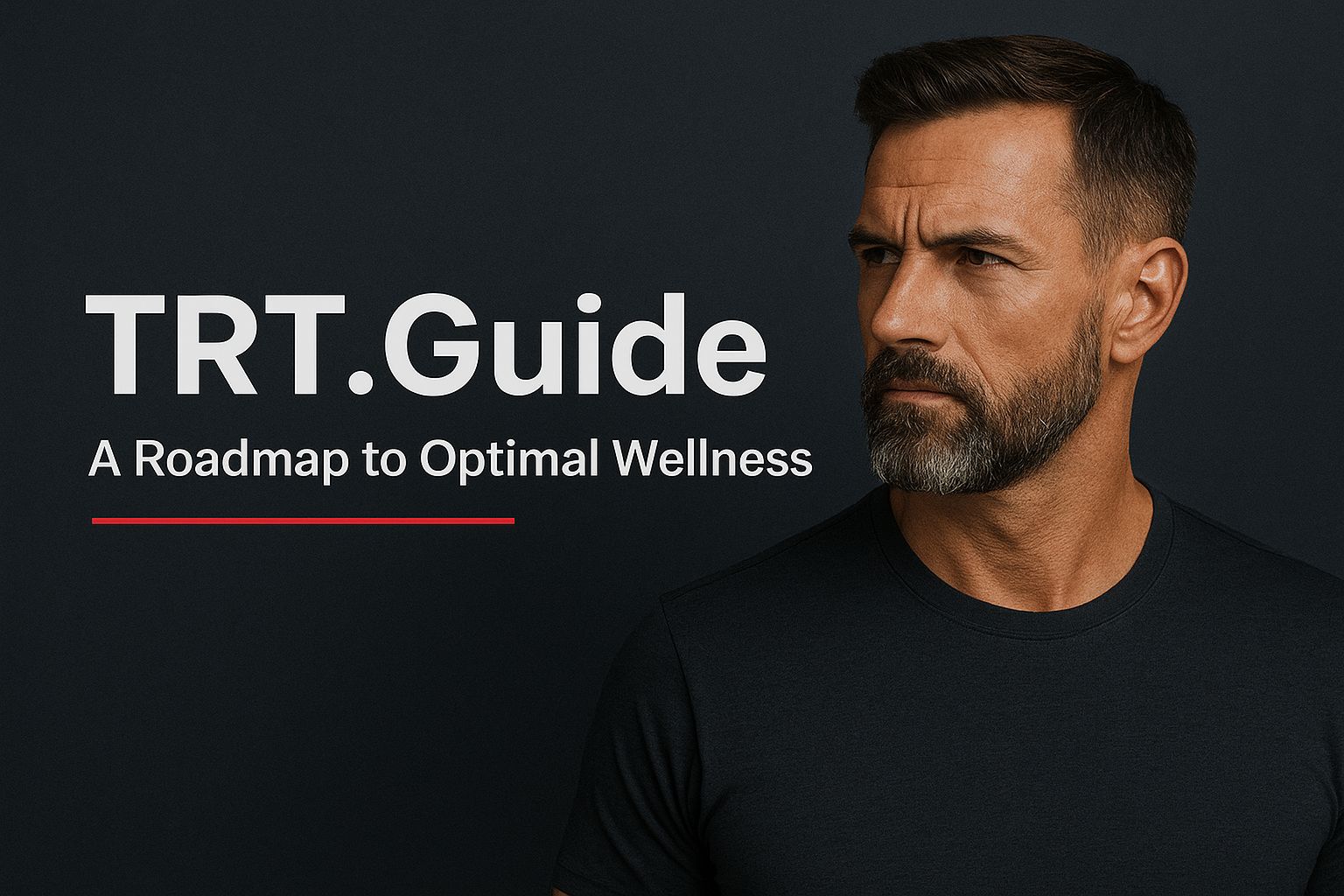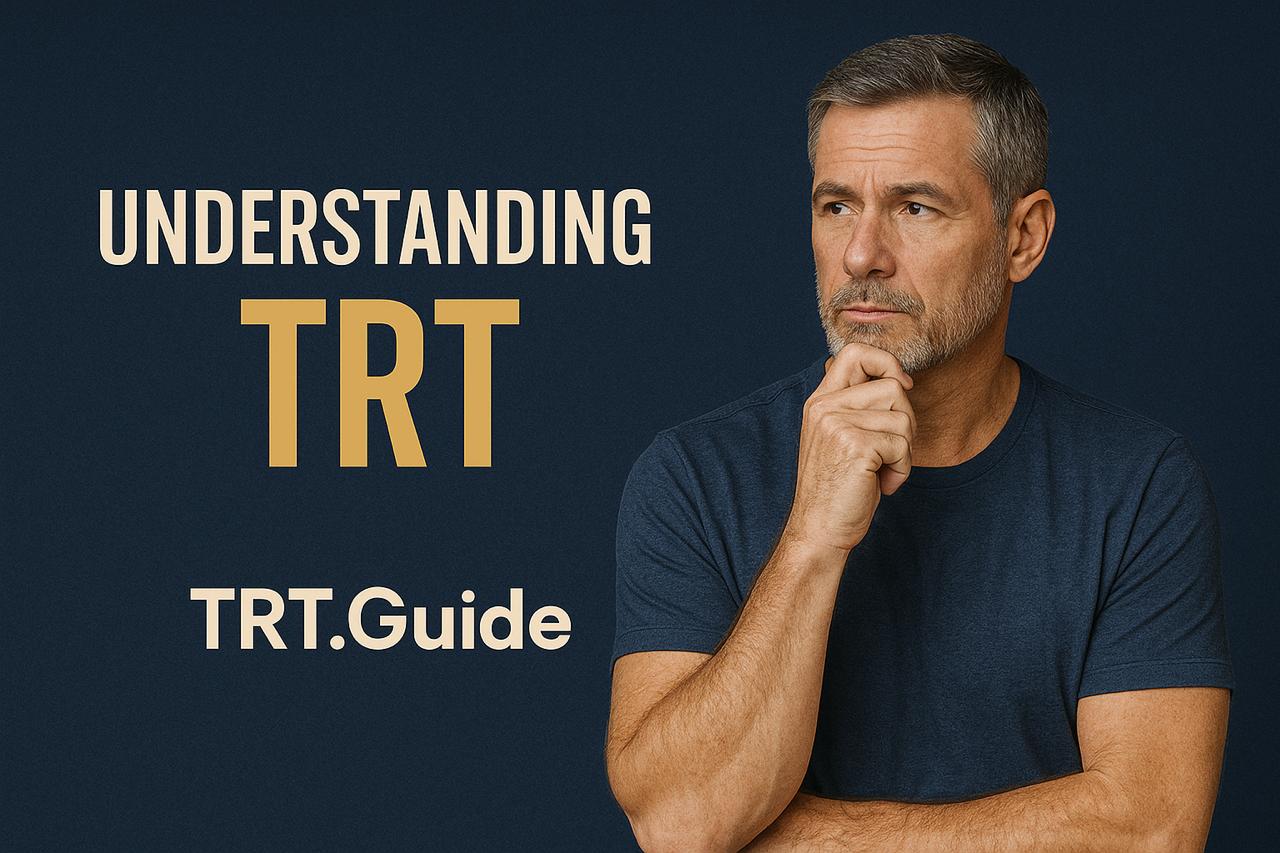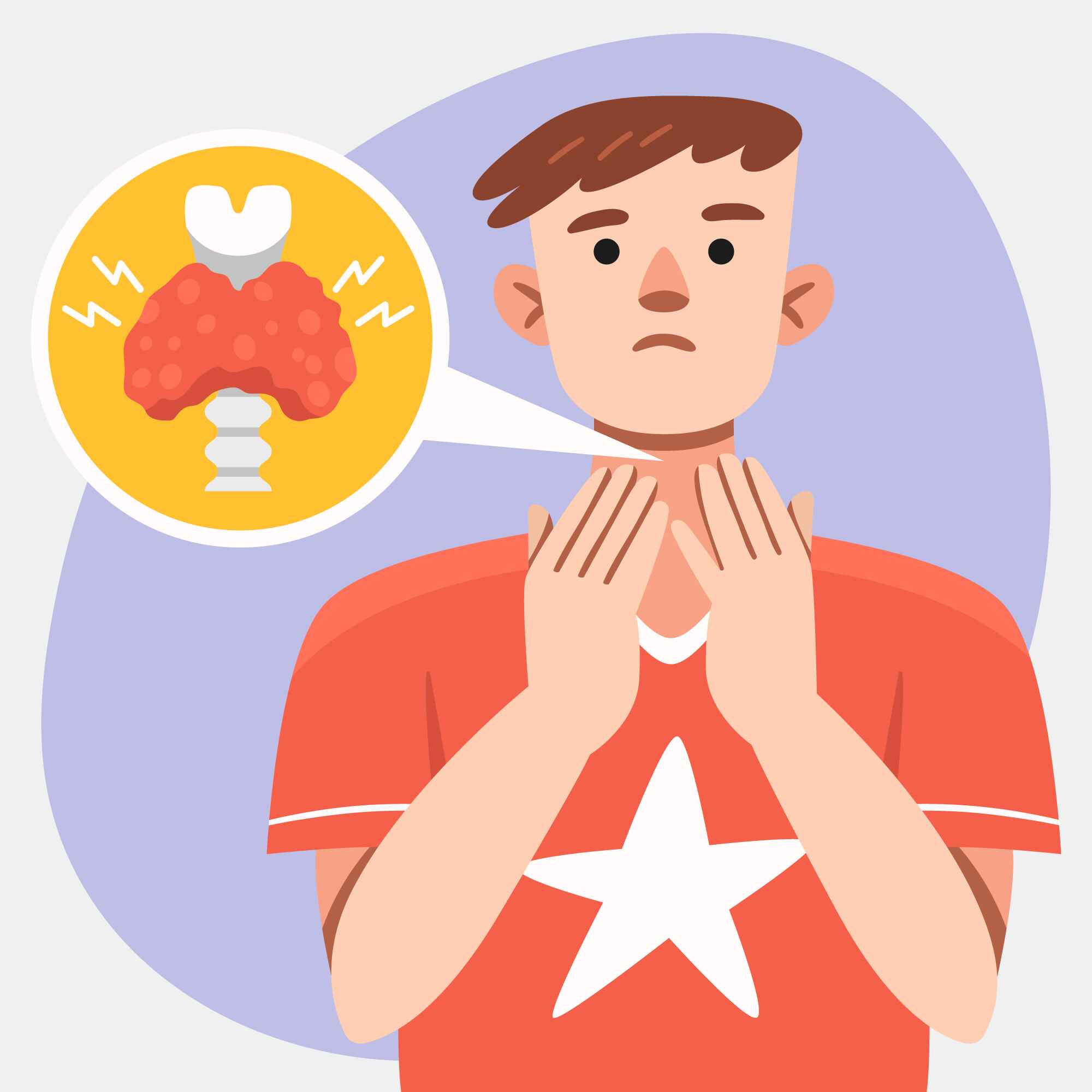Testosterone therapy has recently become very popular in resolving low testosterone levels in men. It has a lot of side benefits such as increased energy and better mood, but at the same time, there are questions about its side effects. One topic that comes up very frequently is the effect of testosterone therapy on thyroid function.
The connection between testosterone and thyroid health must be well understood by someone who is looking to undergo treatment or is already in therapy. It might cross your mind to ask whether the boosting of your testosterone can also lead to thyroid problems, and the answer would be yes. In this article, we will introduce the science of testosterone therapy and discuss in depth the issue of its potential impact on your thyroid to empower you to be informed in managing your health.
Overview of Testosterone Therapy
Testosterone therapy is the application of testosterone to combat a low level of hormones. This informative piece helps you gain an understanding of the therapy’s applications and implications, as a result of which you can decide if the benefits are worth the probable risks.
What Is Testosterone Therapy?
Testosterone therapy is a medical procedure that is undertaken to bring up the testosterone levels in individuals who suffer from a deficiency of the hormone. Generally, the treatment involves administering testosterone via injections, patches, gels, or pellets. The medical doctor decides on how it is to be given particularly in males who experience loss of energy, decrease in sexual drive, and fluctuations in moods.
Testosterone therapy is believed to be a cure for the body’s abnormal hormone levels and it thus promotes the overall quality of life. It is essential to have regular checks on the body’s hormone levels to control doses whenever such a need arises. In doing so, one can prevent the possible side effects. It is also advisable to consult a healthcare provider who is knowledgeable about hormone therapies so you can get personalized care from him.
Common Uses of Testosterone Therapy
Testosterone therapy is widely practiced for various medical conditions hence it serves multiple purposes. This form of therapy is the most common way to treat hypogonadism, a condition in which there are not enough hormones. The most frequent uses are:
- Hypogonadism: The condition of the decreased testosterone levels, the so-called hypogonadism, is treatable with testosterone replacement therapy, which is a kind of hormonal therapy.
- Aging-related testosterone decline: Most men tend to suffer from testosterone depletion as a direct result of aging. Henceforth, therapy may well be helpful in alleviating the concomitant symptoms.
- Muscle mass and strength enhancement: The hormone testosterone assists in the growth of muscle mass as well as strength. As a result, athletes and bodybuilders sometimes misuse it for enhancing performance purposes. This is such risky behavior since it has not been approved for use in medicine.
- Improving mood and mental well-being: People with low testosterone levels are likely to suffer from depression and anxiety. Hormone therapy has been successfully used to remove depressive feelings and cognitive problems in some individuals.
Prior to your healthcare decision-making process, you really want to know up front what the purpose of the testosterone therapy is, and as such, it will put you in a better position to make correct health choices.
Understanding Thyroid Function
The thyroid hormones determine metabolic function and energy levels while promoting bodily health. Understanding these hormones helps one to know their various functions and roles thus leading to the right balance in metabolism.
Thyroid Hormones and Their Role
There are two primary thyroid hormones – thyroxine (T4) and triiodothyronine (T3) which regulate different body functions. The transformation of T4 into T3 occurs outside of the thyroid gland where production is regulated by thyroid-stimulating hormone (TSH). These hormones keep metabolic functions, growth rate, and energy balance in check.
How Thyroid Problems Manifest
Thyroid problems are discernible by a variety of symptoms. The occurrence of the most common symptoms such as loss of weight, obesity, shift in the appetite, and sensitivity to temperature would be easily recognizable to you. Your mood might change, your hair may start to fall, or the texture of your skin might be altered. Sometimes, the enlargement of the thyroid leads to the swelling of the neck area, which is called a goiter. Symptoms and health risks of hypertrophy and hypothyroidism differ, in case of severe thyroid dysfunction. It is of great significance to identify these symptoms early so that appropriate treatment and management can be commenced.
The Tie-in Between Testosterone and Thyroid
The knowledge of the connection between testosterone levels and thyroid function is a must for those who are planning testosterone therapy. A study illustrates that the interaction between these hormones greatly influences the person’s overall health.
Current Research on Testosterone Therapy and Thyroid Issues
New studies strongly indicate that testosterone therapy may correspond to the state of one’s thyroid. Some research in the Journals of Gerontology, however, affirms that men who are undergoing testosterone treatment show changes in their thyroid hormone levels,T3 and T4 to be precise. The results of the study convey that testosterone is likely to increase T3 and to decrease reverse T3, thereby affecting energy consumption. At the same time, other research appears to suggest that subclinical hypothyroidism is more likely to exacerbate in some men due to testosterone therapy. Regular thyroid function evaluation along with testosterone treatment allows the doctors to manage both hormone levels effectively.
| Study | Findings |
| Journals of Gerontology | The situation may be such that T3 and T4 levels are being transformed by testosterone therapy. |
| Endocrine Reviews | Link to testosterone may cause subclinical hypothyroidism to get worse. |
Mechanisms of Hormonal Interaction
Hormonal mechanisms for testosterone and thyroid hormone interactions act through several pathways. Testosterone has an impact on the production and conversion of thyroid hormones which, in turn, affect metabolism and energy. Many studies support that the thyroid gland contains testosterone receptors, and the latter has a direct effect on the thyroid hormone secretion. It is further assumed that testosterone may increase the sensitivity of the thyroid hormone receptors, which will lead to a more effective cell uptake and usage of the hormones.
Thyroid hormones help control testosterone levels. Low thyroid hormones mean low testosterone. Therefore, the balance of hormones is vital for health. Your doctor will aid you in managing testosterone and thyroid levels.
Potential Risks of Testosterone Therapy
There are many kinds of risks that the therapy of testosterone provides that people must be very cautious about due mainly to the possible effects on the thyroid function. Anyway, understanding these side effects and the facts related to the connection between testosterone therapy and thyroid problems will enable you to make decisions that are best for health.
Side Effects of Testosterone Therapy
Therapy with testosterone may lead to some conditions that will affect the overall well-being of the patient. The most frequent side effects are as follows:
- Boosted risk of heart problems: Therapy using testosterone presents a potential risk of high blood pressure as well as conditions that restrict the flow of blood and thus the nutrient supply to the heart, thus, the heart is affected.
- Alteration of mental health: There will be cases when individuals experience changes in mood, irritability, and even depression when undergoing this treatment which in turn will affect their mental well-being.
- Disruption of sleep: Sleep apnea is a disease that has been reported by some users leading to difficulties in breathing during sleep.
- Changes in skin: High testosterone levels can cause acne, oily skin, and other skin issues such as dermatitis.
- Enlarged prostate: Prostate tissue can grow depending on T-stimulated prostate tissue. That, in the long run, causes urinary problems and an increased risk of getting… prostate cancer.
Recognizing the side effects is good for early noticing the health changes, and discussing them with a healthcare provider helps in dealing with the situation fully.
Link between Testosterone Therapy Actions and Thyroid Problems
Studies show a reasonable connection between testosterone therapy and disorders of the thyroid gland. The available data include some of the following:
- Changed levels of thyroid hormones: There are indications that testosterone therapy can be linked to the changes in T3 and T4 hormone levels that are responsible for body metabolism processes directly or indirectly.
- Aggravation of hidden hypothyroidism: Scientific evidence indicates that in some cohorts, testosterone therapy can intensify problems with the thyroid and the change could be worse, as in men with subclinical hypothyroidism.
- Regulatory pathways for hormones function: Testosterone impacts how thyroid hormones are utilized by the body and converted effectively, and low levels of the latter can eventually result in the decrease of the former’s production that leads to their deficiency.
Regular control of the thyroid function while the patient is under testosterone therapy is of paramount importance to ensure holistic health management.
Guidelines for Safe Use of Testosterone Therapy
It is crucial to understand the safety measures in the context of testosterone therapy to achieve the desired health status. These guidelines are worth a try if you want to sail smoothly through the treatment.
Checking of Hormonal Levels
Check blood levels of testosterone, T3, and T4. At the start, tests every 3-6 months may be needed. Hormones can become unbalanced when you feel moody, tired, or are gaining or losing weight. Based on results new dosages may be needed. Testosterone might affect thyroid levels, guardedly if the thyroid is already affected. Talk about new symptoms with the doctor. Regular checks keep testosterone and thyroid levels stable.
Consulting Healthcare Professionals
During testosterone therapy, see hormone therapy experts for personalized management strategies.
At visits, you tell your doctor about medications and health concerns. Nutrition and body weight impact hormone levels. Inquire about interactions between testosterone and thyroid medications. Report side effects; this helps in adjusting treatment if necessary. Anytime the doctor might follow up on this testosterone treatment, they usually see me again every few months to monitor how we are doing in terms of managing my thyroid health.
Conclusion
It is imperative for anyone considering treatment to have a clear understanding of the connection between testosterone therapy and thyroid health. Even though therapy with testosterone is believed to have numerous benefits, it is capable of modifying the level of thyroid hormones in a manner that is beyond your anticipation. Furthermore, keeping the levels of both testosterone and thyroid hormones under control is the way to go, to even the playing field and avert difficulties.
Recognize the dynamics of hormone therapy by staying in touch and cooperating with your healthcare provider. By taking the initiative of being the channel of communication, it becomes rather manageable for one to regulate their testosterone levels and at the same time not neglect the health of the thyroid, thus leading to the overall better health of the body. The open communicating patient needs to talk often to their healthcare team and report their changing conditions, in case of any problem in the therapy.
What are the benefits of testosterone therapy?
Testosterone therapy’s advantages include enhanced energy, better mood, increased muscle, and improved mental well-being. Several men have better quality of life due to therapy for testosterone levels.
Can testosterone therapy affect thyroid function?
Research provides evidence that yes, testosterone therapy does act on the thyroid hormone levels. The data indicates a possibility of testosterone treatment to affect T3 and T4 values and may result in subclinical hypothyroidism getting worse in some men; hence there is a necessity to perform regular thyroid function control when on this therapy.
What are the risks of testosterone therapy?
One of the health hazards of hormone replacement therapy is that it may result in more cardiovascular, emotional, sleep, skin, and prostate problems when used to make up for the shortages. All the possible adverse effects are required to be discussed with your healthcare providers.
How often should I monitor hormone levels during testosterone therapy?
If you get a blood sample for testing every 3 to 6 months to track testosterone, T3, and T4 levels, you will be doing the best possible thing to maintain the benefit from the treatment especially if this is your first time receiving therapy. The whole process of checking is imperative for optimizing hormone levels.
Should I talk to a doctor before I start testosterone therapy?
Always the first thing is to consult a competent physician or a healthcare provider in the field before you get to the point of using testosterone for therapy. A doctor, through diagnostic tests, can give a tailored therapy regime, ensure frequent monitoring, and suggest lifestyle adjustments that will foster a quick balance of hormonal levels.






